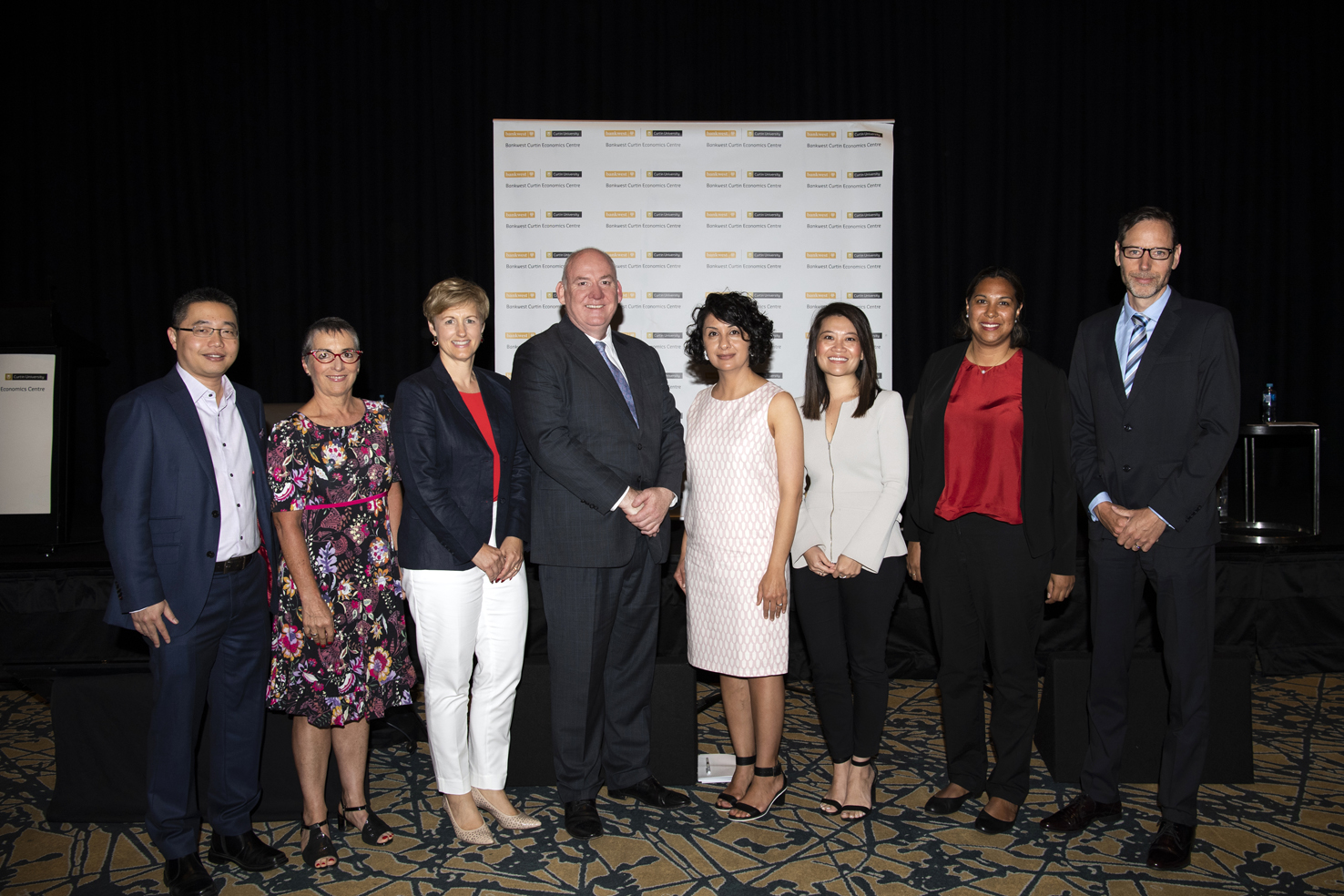BCEC launches WA’s Health Industry Future report

Kelly Pohatu, Events and Communications Coordinator
BCEC’s latest Focus on Industry report, To Health and Happiness: WA’s Health Industry Future, was launched at a breakfast event on Friday 7 December 2018 and provides an in-depth investigation of the health industry, a sector of critical importance to WA’s economy and people.
Future leaders were in attendance, including students from Yule Brooke College and 11-year-old Christopher Henderson who recently presented a speech addressing child poverty in WA Parliament.
A Welcome to Country was performed by Noongar Elder, Betty Garlett and the Moorditj Mob at Wesley College, followed by Professor Deborah Terry AO, Curtin University Vice-Chancellor, delivering opening remarks for the event.

Professor Terry talked about the need for universities to deliver industry-ready graduates to ensure the sector’s workforce can keep up with growing demand.
“As a result of the sector’s fast growth there are key areas of strain. We need to ensure our health graduates are equipped with the skills they need to deliver strong health outcomes to WA’s population,” Professor Terry said.
In launching the report, Centre Director and report co-author, Professor Alan Duncan highlighted the growing role the health care industry is playing in the WA economy.
“The Health Care and Social Assistance sector is the third biggest contributor to WA’s economy, totalling $14.4 billion in Gross Value Added in 2018, and now accounts for nearly 171,000 of all jobs in WA,” Professor Duncan said.
“However, the Federal Government contribution to WA’s total health spending is the lowest per capita across all states and territories, and $212 less per person than the national average.”
“Surprisingly, spending on public health and prevention totals only 1.7% of all spending in the WA health sector. This strikes us as a pretty modest budget given the long-term benefits that prevention deliver, not just in terms of positive health outcomes, but from an economic standpoint.”
Report co-author and BCEC Principal Research Fellow, Associate Professor Astghik Mavisakalyan, said there was a concerning decrease in the number of health care workers who report being very satisfied with their work.
“In addition, we see an increase in the share of health care workers in high or very high psychological distress,” Associate Professor Mavisakalyan said.
“There is a responsibility on health sector employers to ensure the right mix of skills, positive workplace cultures and professional training opportunities for workers. It is imperative that the significance of health care and support work in our society is appropriately recognised.”
Expert panellists agreed a collaborative approach is needed across the Western Australian health care sector, community, government and industry.

Dr Kim Isaacs, Deputy Medical Director, Kimberley Aboriginal Medical Services, spoke about the need to provide more community health services in regional communities.
“If we want to see a change in the number of preventable hospitalisations and deaths then we need to focus on building up community health services,” Dr Isaacs said.
Dr Marcus Tan, Founder, CEO & Medical Director, HealthEngine, highlighted the role of digitalisation in creating a more efficient and effective health care sector.
“Digitalisation provides the health sector with the chance to eliminate duplication, utilise big data to analyse medication use and overuse, and to reduce costs,” Dr Tan said.
Associate Professor Learne Durrington, Chief Executive Officer, WA Primary Health Alliance (WAPHA), discussed the need for a stronger commitment to preventative health.
“It’s hard to create behaviour change but there can be no doubt that prevention is absolutely essential,” Associate Professor Durrington said.
Associate Professor Durrington went on to discuss the report’s findings on the satisfaction and mental health of workers in the health care industry.
“Increasing expectations and complexity of health needs could be one reason we’re seeing a decrease in the level of very satisfied health workers, but we do need to monitor this closely,” Associate Professor Durrington said.
Stephanie Buckland, Chief Executive Officer, Amana Living, spoke of how aged care providers can deliver better services if they take a step back from treating only the medical issues of their residents.
“There are certainly opportunities to treat our seniors holistically, and to wrap the services around them that they personally need,” Ms Buckland said.
In closing the event’s proceedings, Pieter Vorster, Executive General Manager, Customer Insights and Solutions at Bankwest, thanked the BCEC for delivering a compelling report.
“When we entered into the BCEC partnership with Curtin University, we did so to change the lives of Western Australians and their communities, and this report is just one example of how we are achieving this goal,” Mr Vorster said.
The report generated extensive media interest, including articles in The West Australian, Business News, The Age, and interviews with Professor Duncan aired on Channel 9, 6PR and ABC Radio’s network.







